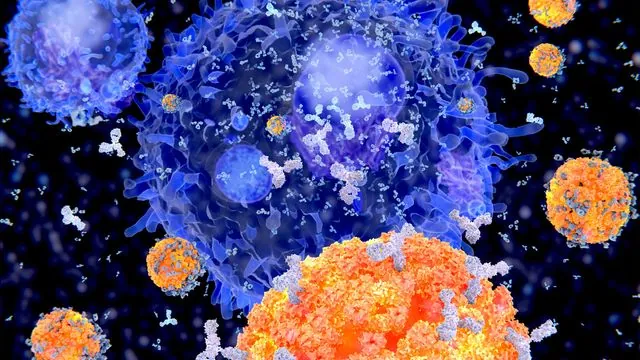
Unlocking the Secrets of Morning Immunity: How Your Body's Clock Can Boost Your Health
2024-12-18
Author: Rajesh
In a groundbreaking study from RCSI University of Medicine and Health Sciences, researchers have unveiled the powerful connection between our internal body clock—often dubbed the circadian rhythm—and the immune system's inflammatory processes. This revolutionary finding opens doors to time-targeted treatments for chronic inflammatory diseases like arthritis, where managing inflammation effectively is crucial.
The study focuses on macrophages, a type of immune cell that plays a vital role in identifying and combating harmful substances. These cells function similarly to smoke detectors, forming large complexes known as inflammasomes to detect threats and trigger inflammation. Notably, the research highlights a specific inflammasome named NLRP3, whose activation doesn't occur uniformly throughout the day. Instead, it fluctuates according to our body’s daily rhythms.
During the morning, when our body perceives it is the start of a new day, macrophages exhibit quicker and more vigorous activation of NLRP3 inflammasomes. "When macrophages 'think' it’s morning, their inflammasome activation is quicker and more robust," explained Professor Annie Curtis, the lead investigator on the project. Such heightened activity during the early hours may be our immune system's strategy to respond to environmental challenges—potentially when we are most likely to encounter injuries or infections.
Interestingly, this study also emphasizes the crucial role of mitochondria, the powerhouse of the cell, in regulating these daily variations in immune function. As our body's energy producers, mitochondria influence how effectively our immune cells can respond to threats.
The implications of these findings are profound for those suffering from inflammatory diseases. For instance, patients with arthritis often experience a surge in symptoms during the morning hours. Understanding that immune response is more active at this time could lead to refined treatment protocols. Dr. James O'Siorain, the study's lead author, noted, "With these findings, there’s potential to refine treatments for inflammatory conditions. New therapies targeting inflammasomes could be more effective if administered at specific times of the day when macrophage activity peaks."
As researchers continue to delve deeper into the complexities of our immune system, this study marks a pivotal step towards developing innovative treatments that not only consider the condition itself but also the biological rhythms inherent in our bodies. By aligning treatment strategies with our body's natural clock, there is hope for more effective management of chronic inflammatory diseases.
Stay tuned as we uncover more insights from the world of immunology and keep your immune system thriving!



 Brasil (PT)
Brasil (PT)
 Canada (EN)
Canada (EN)
 Chile (ES)
Chile (ES)
 España (ES)
España (ES)
 France (FR)
France (FR)
 Hong Kong (EN)
Hong Kong (EN)
 Italia (IT)
Italia (IT)
 日本 (JA)
日本 (JA)
 Magyarország (HU)
Magyarország (HU)
 Norge (NO)
Norge (NO)
 Polska (PL)
Polska (PL)
 Schweiz (DE)
Schweiz (DE)
 Singapore (EN)
Singapore (EN)
 Sverige (SV)
Sverige (SV)
 Suomi (FI)
Suomi (FI)
 Türkiye (TR)
Türkiye (TR)